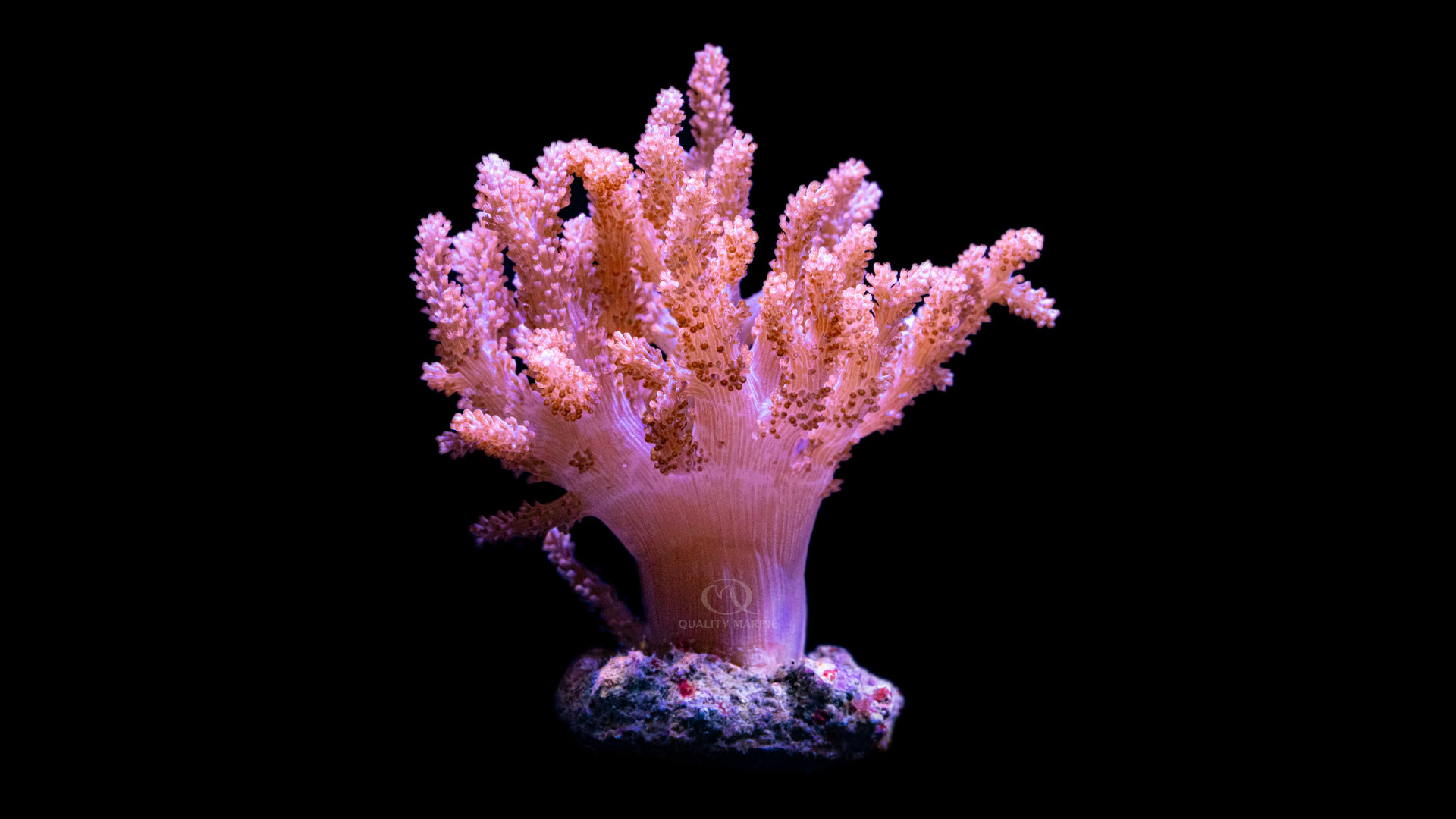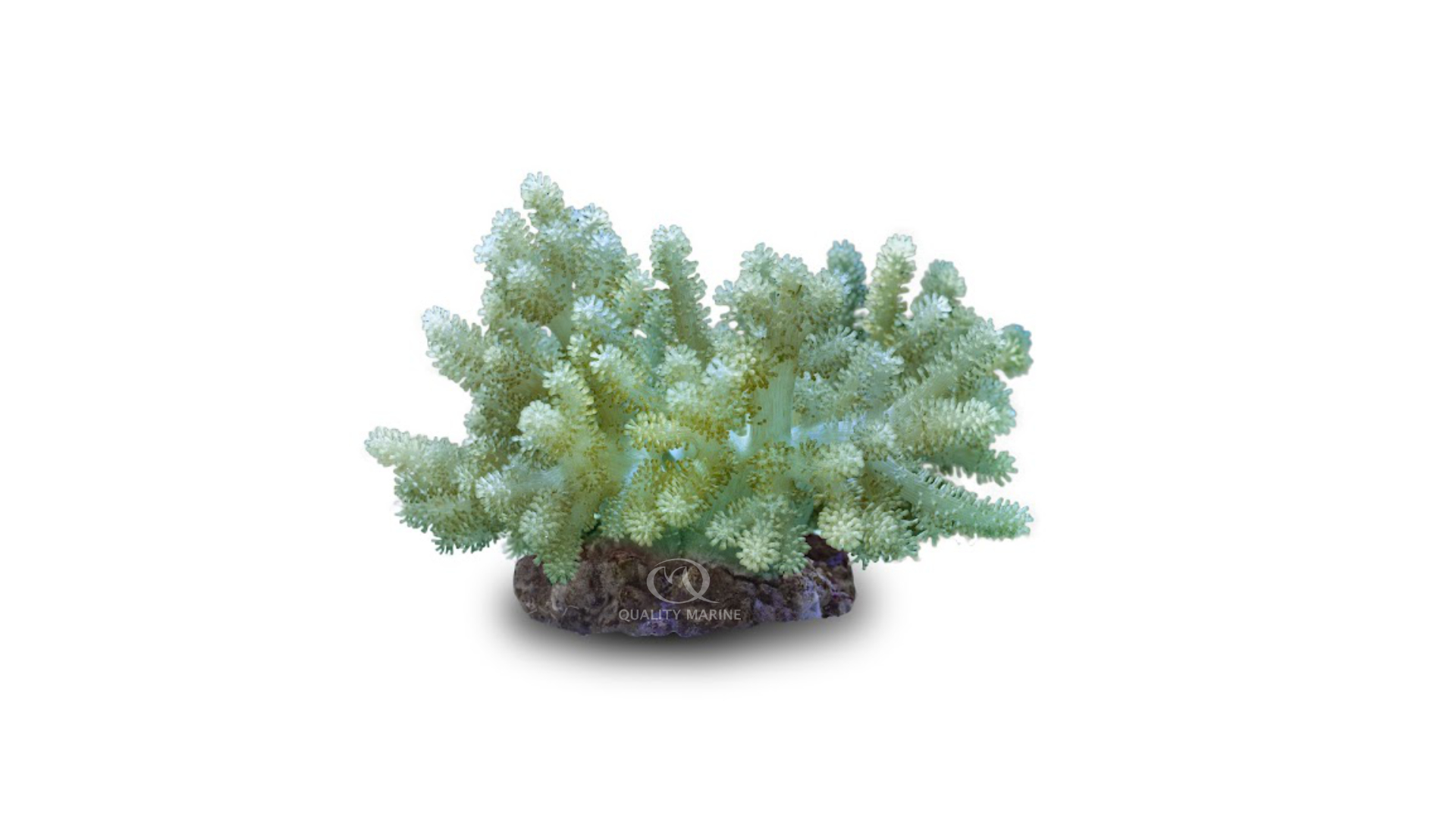Kenya Check This Out?

The Kenya Tree Coral (Capnella sp.) is a member of the family Nephtheidae which are known mostly as “tree corals” or “Dendros” within the hobby. They are generally a gray, brown or a bright green. They are found on the Eastern coast of Africa, but their name is a bit of a misnomer, more on that in the next section! Distribution and Habitat There are many species of corals from the genus Capnella spread from the Red Sea & Eastern Africa all the way to the Western Pacific! Due to this, corals sold only under this genus name (Capnella sp.) may have a wide variety of care requirements. They can come from shallow, rubble areas that are close to shore with large tidal flow and fluctuations in parameters, to deeper sea facing reefs that are consistent in conditions.
Aquarium Requirements
These corals are generally hardy and fairly adaptable. If they look unhappy, they probably are. A soft coral such as ones in this genus should never appear “deflated” and if it does its probably a sign that something is wrong with your water parameters or its getting too much light. Slowly make these adjustments when letting a coral adapt to the conditions in your aquarium. Salinity and temperature should be stable and in range with reef aquarium guidelines. Some amino acids and nutrients (phosphate, nitrate, marine plankton) are also generally considered helpful in the keeping of Kenya Tree Corals.

Feeding
Kenya Tree Corals do have a symbiotic relationship with algae inside them that allows them to turn sunlight, water, and carbon dioxide into sugars. These corals wont be able to feed on most things we can offer LPS (large polyp stony corals) corals. As mentioned before they will appreciate some nutrients in the water in the form of detectable phosphates and nitrates. Outside of dissolved nutrients, the very best foods for them are a variety of live algae products from Nutramar. You could also target feed them marine snow / plankton products.
Propagation
Kenya Trees have a mixed reputation when it comes to propagation. For the most part, they are easy and will spread themselves by fragmentation (small parts breaking of naturally, or by you trimming). These bits will adhere elsewhere in the reef and keep growing or by budding, where they will produce smaller clones of themselves at their margins where they are attached to the rockwork. You can cut them yourself, and attach them to frag plugs but glue usually doesn't hold them well, so they will need still conditions or mechanical fastening or both. Conclusion
Kenya Tree Corals are a beautiful coral for every hobbyist, but make a perfect starter coral for beginning or intermediate reefer and can provide a a challenge in maximizing growth and propagation for more advanced reef hobbyists and those looking for fun corals to sustainably propagate in captivity. Call your LFS and ask them for a sustainably sourced Kenya Tree Coral from Quality Marine today!